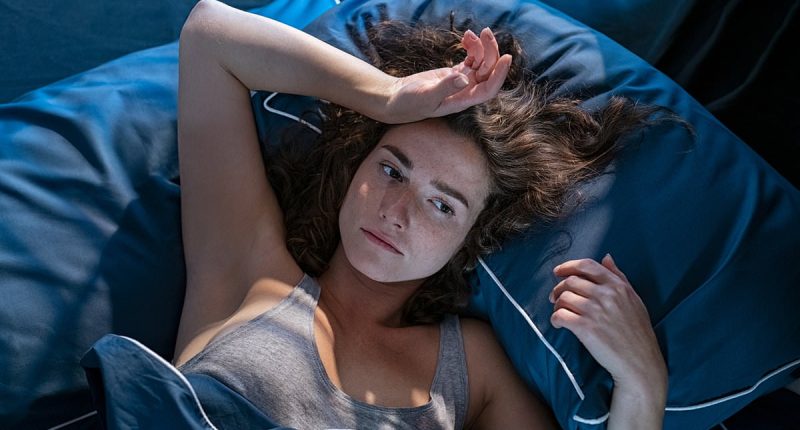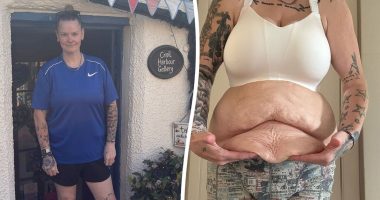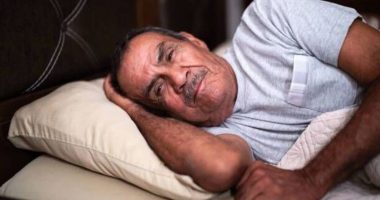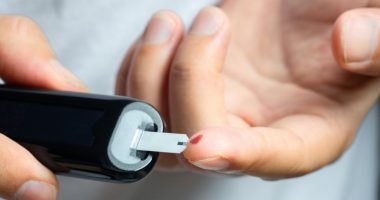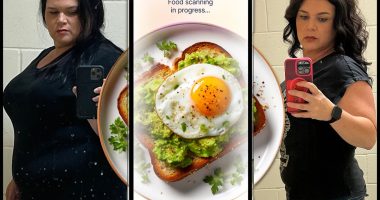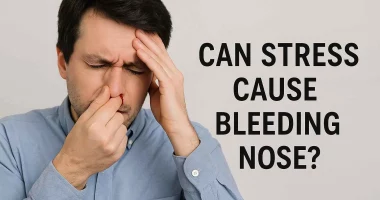Share this @internewscast.com
Millions know the pain of tossing and turning at night, especially as the hot summer months get underway.
But a world-renowned sleep expert has shared his ultimate five-step plan to help you finally get some quality shut-eye.
One of the most important steps is making your bed a sacred place.
‘Only use your bed for sleep and intimacy,’ says Dr. Matthew Walker, professor of neuroscience and psychology at the University of California and author of bestselling book Why We Sleep.
That means absolutely no phones, no laptops and definitely no binge-watching from under the duvet.
It’s a concept known as ‘stimulus control,’ and it works by retraining your brain to associate the bed with rest – not TikTok or emails.
‘The bed should never be used as a workstation,’ Dr. Walker warns.
And it’s not the only lifestyle tweak he recommends. Here are the five science-backed habits he says can help reset your sleep.
1. Make your bed a tech-free zone
It might feel cozy to scroll or stream in bed, but Dr. Walker says it’s one of the worst things you can do for your sleep.
Blue light emitted from screens can interfere with the natural sleep-wake cycle, making it harder to fall asleep and affecting the quality of your snooze.
This light disrupts your body’s production of melatonin, the hormone that makes you sleepy.

Quizzed on how much sleep people should get, sleep expert Dr. Matthew Walker (pictured) recommends 7 to 9 hours per night
But it’s not just about light. When you use technology under the covers, your bed mentally becomes a place of stimulation rather than relaxation.
Dr. Walker recently helped design the ultimate bedroom for a peaceful night of sleep, which can be found at the Equinox Hotel in New York.
So concerned about the harms caused by light pollution, he even removed tiny blue lights from the smoke detectors for a complete blackout experience.
2. Stick to a schedule, even on weekends
It’s the last thing you want to do after a long week, but waking up on weekends at the same time you would for work is key.
If you tend to sleep in on weekends and pull late nights during the week, Dr. Walker says you’re throwing your internal clock out of sync.
Regimented slumber helps regulate your circadian rhythm so your body knows when to wind down and when to wake up.
Your goal: Hit the same bedtime and wake-up time every day. Not only will you fall asleep faster, but you’ll wake up feeling more refreshed.
3. Avoid caffeine after lunch
Caffeine lingers in your system long after that pick-me-up – up to 10 hours – so that means you shouldn’t even be indulging in that 3 p.m. latte, sorry.
One study found that it slashed sleep time by 45 minutes, which, Dr. Walker says over time raises the risk of almost every major chronic disease.
That’s why his golden rule is to cut caffeine early. ‘The earlier you can limit your intake, the less impact it will have,’ he says.
A good rule of thumb is to cut caffeine intake after noon, which means by 10 p.m., it should have fully cleared from your system.
Also in the no-go zone is alcohol before bed. While a glass of wine might make you drowsy, Dr. Walker says it ‘certainly shouldn’t be used as a sedative.’
In fact, regular boozing before bed can make sleep more fragmented and increase the risk of long-term insomnia.
4. Practice a wind-down ritual before bed
Forget doomscrolling or racing through chores until the minute you pass out. Dr. Walker recommends building in a calm, tech-free hour to cue your body for rest.
Try ‘relaxation techniques such as progressive muscle relaxation or mindfulness meditation,’ he says.
In the hotel rooms he developed, there are meditation and breath-work programs installed on the TVs, which he says have ‘an immediate calming effect’.
Screens are OK in this case if you’re just using them to zen out, he explains. And he recommends practicing these relaxation techniques an hour or more before bed, so that you can then ditch your devices and truly switch off.
He also recommends a light-dimming routine to mimic the gradual effects of sunset and sunrise.
This is another design feature he has incorporated into the Equinox hotel rooms, with an automated lighting system designed to put guests to bed and wake them gently in the morning.
‘In the last hour before bed, set an alarm and turn down half of the lights in your home for two weeks,’ he said, recommending a trial period. ‘Then go back to full lights on, and ask yourself which you prefer.
‘If possible, use dimmer switches or lower-wattage lamps for evening lighting.’
5. Get 7 to 9 hours of sleep

Dr. Walker, a professor of neuroscience and psychology at the University of California , told the Daily Mail that some of the biggest factors behind peoples’ inability to sleep include ‘chronic stress, irregular schedules and the rise of tech gadgets’
None of the aforementioned hacks matter if you’re simply not sleeping enough, says Dr. Walker.
The magic range is between ‘7 to 9 hours per night, as supported by robust evidence showing that this range provides maximum benefits for brain health, emotional stability, immune function and physical repair,’ he said.
Less than six hours? That’s when things get dangerous.
The doctor says a lack of sleep is ‘directly linked to increased risks of cardiovascular disease, metabolic dysfunction and impaired cognitive performance.’
Not to mention, it raises stress hormone levels, lowers immunity and can even increase the risk of early death.
Insomnia isn’t just annoying, it’s costly. Sleep disorders rack up an estimated $94.9 billion each year in the US, from doctor visits and prescriptions to lost productivity.
But according to Dr. Walker, it doesn’t have to be that way – yes, you can get yourself to a place where you can skip the melatonin gummies.
Start by reclaiming your bed as a place for only sleep (and sex), and see what happens.
Dr. Walker has designed the Sleep Experience program at the Equinox Hotel New York. For more information visit equinox-hotels.com
